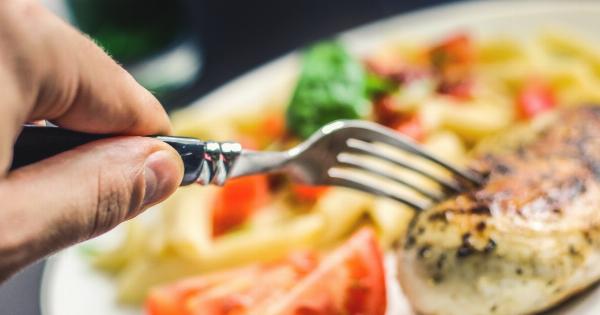It’s normal to feel hungry and crave for food, especially when it’s time for breakfast, lunch, or dinner.
However, for some people, this natural urge for food can turn into an obsessive behavior that can lead to health problems and psychological issues.
What Is Obsessive Craving for Food?
Obsessive craving for food is a condition where a person experiences intense and persistent urges to eat certain foods. These cravings can occur at any time of day and may be triggered by emotions, such as stress, anxiety, or depression.
People with obsessive craving for food often experience guilt and shame after binge eating.
Causes of Obsessive Craving for Food
There are several factors that can contribute to the development of obsessive craving for food, including:.
Emotional Triggers
Emotions such as stress, anxiety, depression, and boredom can trigger cravings for certain foods. For example, a person may crave sweets because they associate them with comfort and happiness.
Hormonal Changes
Hormonal changes during a woman’s menstrual cycle can cause food cravings. The hormonal changes can cause the body to crave certain foods.
Dietary Restrictions
If a person restricts certain types of food from their diet, they may develop an obsessive craving for those foods.
For example, if a person starts a low-carb diet, they may start to crave carbohydrates because their body is not getting the same amount as before.
Genetics
Some studies suggest that there may be a genetic component to obsessive craving for food. Research has found that certain genes may be linked to the regulation of appetite and cravings.
The Impact of Obsessive Craving for Food
Obsessive craving for food can have a significant impact on a person’s physical and emotional health, including:.
Weight Gain and Obesity
Obsessive craving for food often leads to overeating and binge eating, which can cause weight gain and obesity. People with obesity are at a higher risk for developing health problems such as heart disease, diabetes, and stroke.
Poor Body Image and Self-Esteem
Obsessive craving for food can cause a person to feel ashamed and guilty about their eating habits, which can lead to poor body image and low self-esteem. This can also lead to the development of eating disorders such as bulimia and anorexia nervosa.
Depression and Anxiety
People with obsessive craving for food are at a higher risk for developing depression and anxiety. These mental health conditions can exacerbate overeating and binge eating behaviors.
Treatment for Obsessive Craving for Food
There are several treatments available for obsessive craving for food, including:.
Therapy
Therapy such as cognitive-behavioral therapy (CBT) can help people with obsessive craving for food learn to identify and manage triggers for their cravings.
CBT can also help people develop healthier coping mechanisms for stress and other emotional triggers.
Medication
Medications such as antidepressants and anti-anxiety drugs may be prescribed to help people with obsessive craving for food manage their mental health symptoms.
However, these medications should only be prescribed by a healthcare professional and should be used in combination with therapy.
Nutrition Counseling
Nutrition counseling can help people with obsessive craving for food develop healthy eating habits and learn to make better food choices. This can also help people develop a better understanding of their dietary needs and requirements.
Conclusion
Obsessive craving for food is a serious condition that can lead to physical and emotional health problems.
It’s important for people with obsessive craving for food to seek treatment from a healthcare professional and to develop healthy coping mechanisms for emotional triggers. With proper treatment and support, people with obsessive craving for food can learn to manage their symptoms and maintain a healthy, fulfilling life.






























